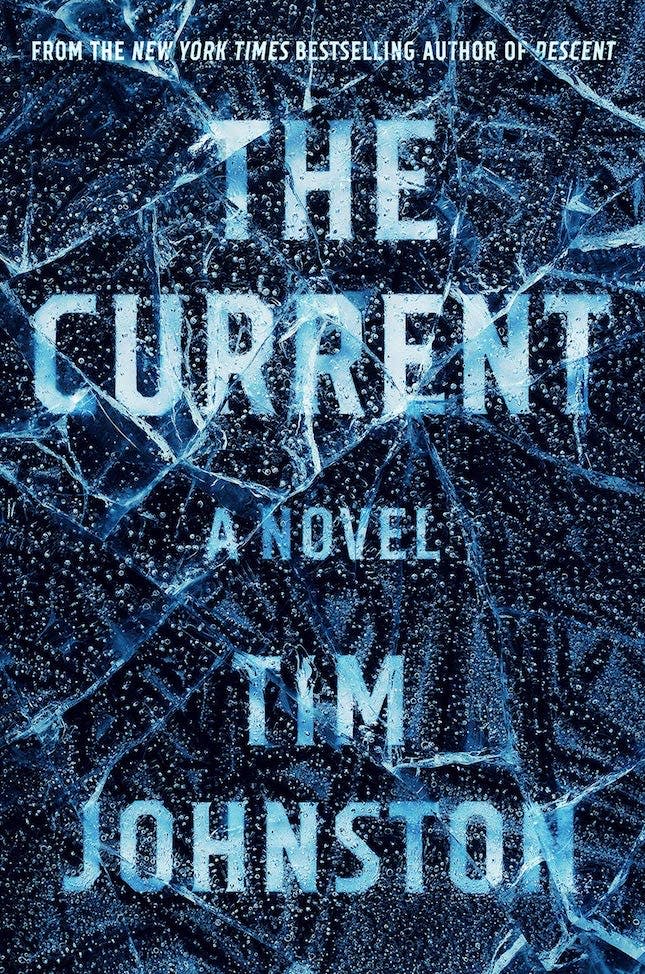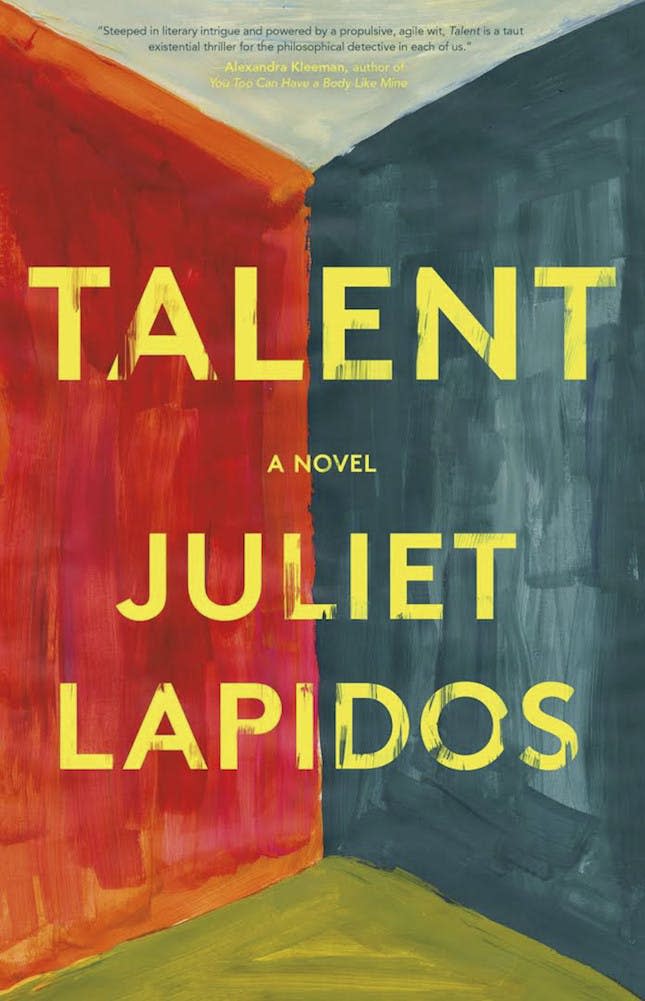3 New Books About Unusual Detectives
Sherlock Holmes. Hercule Poirot. Inspector Morse. Sherlock Holmes… again. When we think of famous detectives, there’s certainly a “type.” The three detectives who are the main characters in the new novels in this week’s book club are all unusual or unlikely in some way, whether it involves a special ability or a singular reason for getting into the world of crime and intrigue. In these books, cases get personal, go literary, or head to an alternate universe. We hope you can find the motive to give them a try.
1. The Current by Tim Johnston ($28): “Audrey drives now, and they talk, and Caroline learns that Audrey’s father has lung cancer — the cancer is back, actually — and there’s no hope. Her mother died when Audrey was just seven, a rare blood disease, and there are no brothers, no sisters — Caroline knows these facts from the dorm room days, from those early days when they were still trying — and she understands that in a few months, or however long it takes, Audrey will be an orphan at the age of nineteen. The cold night rolls by, northern Iowa, flat and snowy, a few farmhouses lit up in the empty reaches. Caroline imagines Audrey out there — walking out there in her winter boots, her black knit cap, all alone. Everything strange from this vantage. A girl who is not her sitting in her seat, hands on her steering wheel. As if she’s been transformed. If she looks in the vanity mirror now, what will she see? Her mind is playing tricks on her. She needs sleep.”
Audrey and Caroline go from mismatched, unsuccessful college roommates to fostering a tentative, growing friendship. When Audrey asks Caroline for $150 for a bus ticket to visit her terminally ill father, Caroline, who is having both boyfriend and professor issues, spontaneously decides to drive Audrey the 11 hours instead. Their trip is largely uneventful until they’re almost at their destination, but a choice to pull off the highway leads to disaster. Audrey is attacked at the gas station rest stop, and their panicked flight leads to a crash into a river that leaves one woman dead and the other traumatized.
It seems like a tragic accident, but the survivor doesn’t quite buy that interpretation. Instead, she begins an investigation of her own into what happened, finding strong similarities to an incident from 10 years ago. The mystery of the small northern town deepens, as she researches the people involved in the decade-old case, who have been unable to move past the tragedy, and at least one of whom could be very dangerous. Reopening the wounds of the past, and finding a connection to the present, this detective will learn a great deal about grief and personal strength.
2. Talent by Juliet Lapidos ($27): Atlantic editor Lapidos tells the tale of Anna Brisker, a graduate student in English who is more apt to detect the symbolic meaning of a text than to find the root of a crime. Those worlds collide, however, when Anna finds herself completely unable to finish her dissertation, which is ironically about the inspiration she lacks. Her advisor at Collegiate University is getting impatient for Anna to find the material she needs to kick off the final phase of her paper. When a woman claiming a missing wallet asks Anna for $50 to pay for groceries with a promise of repayment and then does no such thing, Anna has no idea that finding and following the woman home will have such repercussions on her academic career.
“In this barren landscape, my debtor stood out. Rather, her trench coat did. She was jogging in place to keep warm at a red light, an orange pogo stick bobbing up and down. The right, the most reasonable, thing was to let the matter drop. Her infraction had been minor, after all, and I had work to do. I should have gone home, shed my winter layers, and turned on my computer. In twenty minutes or less, a blinking cursor would have replaced the woman from the supermarket as the object of my attention. Instead, I gave pursuit.”
It turns out that the woman is Helen Langley, disinherited niece of famed writer Frederick Langley. Frederick was a reclusive author who, Helen claims, did not suffer from writer’s block during all his cloistered years, but in fact was writing right before his death. This personal connection, along with singular access to Frederick’s notebooks, provides inspiration for Anna, who believes that inspiration is closer to perspiration, to finish her study. It also lands her in danger of academic theft from other scholars and puts her in the midst of Helen’s machinations, as the other woman believes she has been unfairly cheated out of a sizable inheritance. A satire of liberal arts graduate students at vaunted universities, Talent presents a literary detective who winds up needing to puzzle out some real-world mysteries.
3. Golden State by Ben H. Winters ($28): Laszlo Ratesic is definitely an unusual detective. In the independent Golden State, which exists in place of California, he’s part of a body called The Speculative Service, a sort of “truth police,” who expose untruths. In particular, Laszlo can sense when someone is telling falsehoods, a rare ability and one that proves invaluable in his job. Unchecked lies and misinformation once brought this society to a standstill, and in order to ensure it never happens again, truth and order are top priorities. In fact, lying in casual conversation, and even lying to protect someone, is considered a greater crime than the crime itself.
“Somebody’s telling lies in here, and it’s making it hard to eat. In a perfect world, a man should be able to sit down at a favorite spot and eat his breakfast his breakfast without the weight of professional obligation coming down on him, ruining his morning, pulling him right into the thick of it before he can so much as get a good hot sip of coffee. But the world has never been accused of being perfect, has it, and so here we are and here is what actually happens — here is reality. No sooner has Honey the waitress slid my steaming breakfast plate down in front of me, right next to a piping-hot cup of mountain-grown, than I catch a small dissonance in the air — the barest ripple, the softest whisper — but it can’t be ignored. My body won’t let me ignore it.”
Working in Speculative Service for almost two decades, Laszlo loves his job. Paradoxically, even though detecting lies causes him physical discomfort, he’s one of the few people able to “speculate,” and therefore be less than truthful. This ability proves necessary when Laszlo’s new partner encourages him to investigate a suspicious death, and he gradually comes to the realization that a surveillance state that promotes a specific type of truth isn’t necessarily right, especially when those in power stand to gain from certain facts. You’ll have to decide whether you believe the “author’s” assertion that, when it comes to the tale of this truly unusual detective, “all of the words of it are true.”
What books help you crack the case? Tag us in your next mysterious read @BritandCo.
Brit + Co may at times use affiliate links to promote products sold by others, but always offers genuine editorial recommendations.





